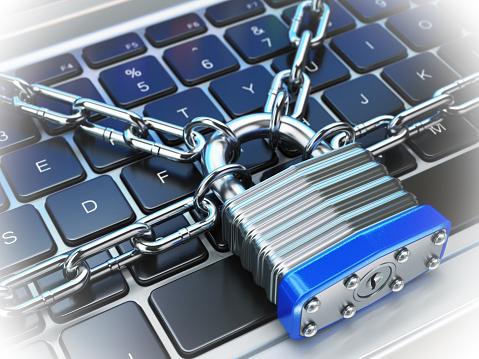How to protect your personal computer from hackers
With the spread of piracy, data espionage, viruses and malware, the issue of protecting the personal computer has become an urgent issue that must be taken into consideration before it is too late. In this regard, the "Online Tech Tips" website, concerned with technical affairs, provides a number of important tips to protect the computer from hackers.
Most users know that the Internet is the main source of damage to a personal computer, as it opens it to a wide world full of harmful websites, malware, and viruses. Therefore, the first step to follow is to install a good anti-virus program, emphasizing the importance of constantly updating it.
There is no point, for example, in installing an anti-virus program on your computer and then leaving it neglected without updating. Although this process is usually done automatically, some programs require updating manually, and this issue is necessary because such programs become unable to detect viruses or malware if they are not constantly updated.
Among those programs, we mention the free "AVG Antivirus" and "Avast Antivirus", and "Kaspersky Antivirus", which the "Online Techtips" website indicates - although it is not free - has one of the best rates Virus discovery.
The second issue is updating all programs on your personal computer, because these updates mean filling many security gaps that these programs may contain.
In addition, avoid installing untrusted programs. If you do not know the nature of a particular program, do not install it. Also, some programs require the download of other additional programs during their installation, be careful here as they may be spyware. In general, always seek to obtain software from the websites of major names such as Microsoft, Adobe, and others.

Another important issue is to avoid peer-to-peer (P2P) file programs, although these are very useful if used very carefully for movies, songs, and files. But if you are not technically savvy, you may end up downloading a song that contains, for example, spyware that closely tracks your every keystroke and sends it over the Internet to another who is waiting for that moment.
Another important thing is deleting e-mail messages whose sender you do not know. If you receive such messages, do not bother opening them and delete them directly, especially if the message includes attachments or links to websites, because it may be a phishing message that, when opened, leads you to install A malicious program that allows a hacker to spy on your computer and hack it.
Also, don't click on ads as much as possible, especially ones with animated objects that if you can click on them - like shooting an animated duck - you win a prize. Ads have become more complex to the point that they try to be interactive that attracts you to play with them as if it were an electronic game.
Do a periodic scan of your computer for viruses. If you cannot perform such a scan daily, do it on a weekly basis at least, and you can schedule the anti-virus program on your computer to perform such a scan late at night or at times when you do not use the computer. Which avoids you suffering from the slowness of the device during the scanning process.
It is also important for you to be fully aware of the safety of what you connect to your computer, such as flash memory disks or CDs, even if you brought them from a friend. Such means are common ways of transmitting viruses, and you do not know for sure the safety of that friend's device.
Use virtual environment programs to browse websites with more privacy and security, as this environment allows programs such as Internet Explorer to run in a private environment that does not affect the operating system. For more information in this regard, search your favorite search engine for "Virtual PC" or "VM Ware".
Install a firewall on your computer or make sure it is turned on. For those who are unaware of the usefulness of these programs, they prevent hackers from accessing your computer by restricting open ports over the Internet. Also, when you buy a wireless internet router (router), make sure that it includes a built-in firewall, as having a firewall device and program is better than owning only one of them.
Secure your wireless network by entering your router's settings and activating the options that require a password, and you can choose between several degrees of encryption, otherwise anyone can enter your home network and access all your files.
Use a complex password to access your computer. It is not a good idea to leave your computer unprotected. You can set a password for each account at home. A complex password means using letters, symbols and numbers.










